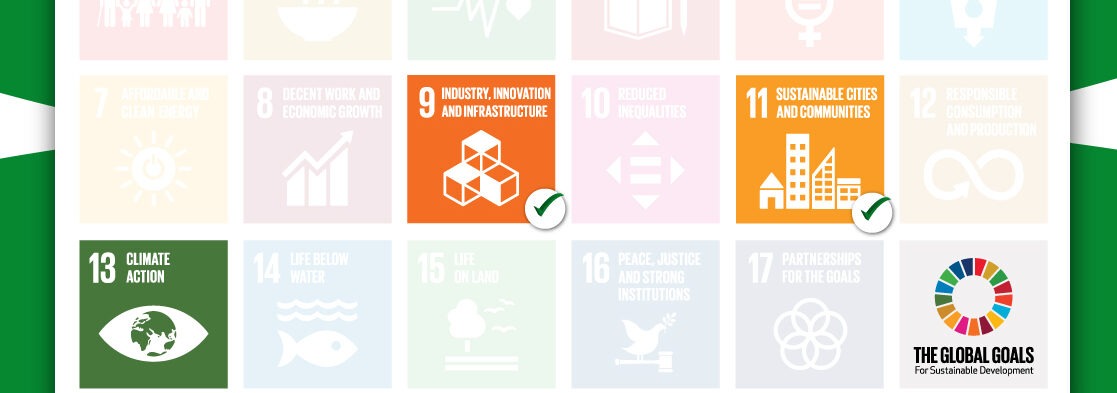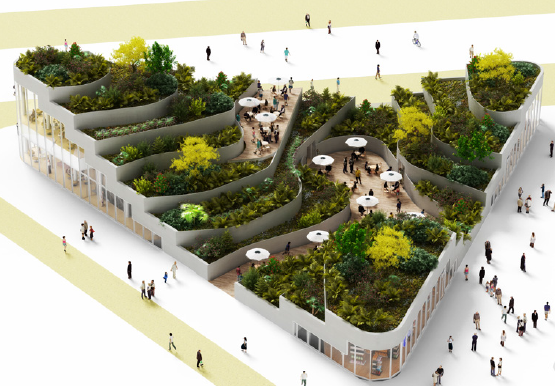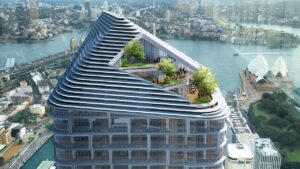
The oldest urban settlements appeared in the 9th century BC. Since then, the city has undergone considerable changes from small-localized settlements to densely populated. In the same vein, it has been affirmed that cities characterized by their soaring growth are the future of modern civilization; a statement that is difficult to argue with the predictions that 70% of the populace will be living in urban areas by 2050. Cities concentrate on human resources and drive countries’ economic growth so also it is the determinant and dominant barometer of the wealth of the nation.
However, this growth, with its limitless positive impact also brings damages in the form of; natural resources scarcity, environmental pollution, and overpopulation. The need to “maintain manageable and balanced developmental chemistry between man, social amenities and environment so as to ensure healthy economical and ecological life of our cities for the present and the future” birth the concept of sustainable cities and the built environment.
Livable City
The study of human spatial behavior vivifies that urban dwellers tend to live in areas where there is best of everything; social, amenities, electricity, water, communication facilities, and others for their convenience also where their output could be well complemented to create synergy, the resultant effect is a city with a concentration of intellectuals that are the drivers of innovations, development, and economy that are desired by all. Therefore the SGE are planning partnership with public and private sector in creating and revamping existing statutory content, construction methodology, developmental plan as well as city mapping that core itself in the creation of an environmentally friendly urban upgrade to promote a high quality of life.
Advancement in the propagation of sustainable development and high-tech solutions midwife “Smart City” concept. “Smart City” was defined as the adoption of IT and communication technologies (universal computerization, cloud technologies, open data, big data, etc.) in sectors of the urban economy to improve the quality of life in the city. “Smart City” implies Smart Economy, Smart People, Smart Governance, Smart Mobility, Smart Environment, Smart Living. By wrapping every aspect of city development players in a package called information technology, the birth of a smart city is inevitable. The introduction of 5G, cheaper, affordable, and readily available fiber optics will surely enhance the smartness of our cities since faster internet is the sine qua non to faster development vice versa. Our role is to sensitize these players on how to go about this by providing a lead role and referencing areas where this has been adopted in conformity with SDGs.

Creative City:
Adams and S. Tiesdell prescribed that people are magnetized by the beauty and success of a place either for temporal or permanent residence. To put it in more perspective, cities’ ability to attract creative and intelligent people is a steppingstone to its greatness. This invariably implies that creating local content and environment that tend to unleash the human thinking capital and encourage actualization of their dreams brings more people of like mind which means development, this can be seen in the amount of juicy attraction and wooing of brains of developing country to the western economy, by highlighting the comfort it brings to the wooed. Our role also is to give eye-opening advice and involvement to the concerned parties to these facts and give headway in such direction encapsulated with SDGs.
Marketable City
City Branding is understood as the development of city identity and its bright presentation for the target audience. Using a marketing approach allows creating a positive recognizable image of the city that strengthening the city’s position in the global competition of territories. Certainly, the built environment plays an important role in shaping the image of a city. This to be simply put is embellishing the prospect of the city to investment, tourism, and technological suavity. The city with a higher rate of feasibility and viability of doing business will surely bring more investors thereby improving the life of locals.
Healthy City
COVID 19 has surely reiterated the age-long statement that health is wealth and that the global cities are a pandemic or an epidemic away from being submerged into bankruptcy as it is prevalently apparent everywhere in the globe. This sector also encourages living in serenity and sanctity. We at SGE are also championing campaign in this direction by encouraging the masses and administration to engage in the prerequisites of prevention of the spread of the pandemic and other ailments in the area channeling our budget towards the realization of SDGs in health sectors.
In order to adequately sensitize and lead the city on sustainability, these SDGs guideline highlights will be applied by SGE on the Urban sustainable Planning strategy. It involves Passive Solar Planning, Ventilation, Urban network, land density and flexibility of uses and its aptitude, reuse of urban area, built environment rehabilitation, distribution and connectivity green spaces, indigenous vegetation, environmental monitoring, efficient renewable and centralize management of energy, management of drinking and wastewater, sustainable materials, construction and demolition waste, management of urban solid waste, air quality, carbon rebate, and rating, outdoor thermal comfort, Acoustic and light pollution, safety in the streets, natural and technological risk, proximity of service, entertainment equipment, local production of food, public transportation, pedestrian accessibility, cycle paths network, public spaces, heritage valuation and landscape, integration and social inclusion, economic viability, employability, information and communication technology.
Though tangible progress has been made in the area of smart cities, AI (artificial intelligence), waste recycling and management, VR ( Virtual Reality), BIM ( building information modeling), Robotics, cheaper solar system and other renewable energy to mention few; in order to bring comfort to man, however, these have contributed its own token to the cumulative stresses of the built environment and demand a necessary response from the society to continually maintain a leveled scale between the architectural molecules of the city and its environment. At this point in response is the SGE campaign using the SDGs to combat those problems to ensure sustainability.
- Provision of innovative solutions to environmental problems within the industries, commercials, residential, government, and public sectors.
- Provision of Expert Advisory services to our Clients.
- Provision of Monitoring and Assessment services in waste management and recycling, air & water pollution control, and noise & acoustics.
- Environmental Monitoring
- Environmental Impact Assessment
- Noise and Acoustics
- Environmental Management System
- Waste Management
- Air and Water Pollution control
- Research and Development on Waste Management and Recycling
- Provision of Renewable Energy Service
- Energy Auditing and Consulting
- Training and Development
- Research and Development on Renewable Energy
- Provision of Sustainable Agricultural Consultancy Service
- Soil Management System
- Pest Control
- Integrated Livestock and Crop Management
- Research and Development on Sustainable Agriculture
- Provision of Sustainable Construction and Building Consultancy Service
- Green Building Rating System (Nigeria)
- Sustainable Building Analysis and Consultancy Service
- Sustainable Construction Analysis
- Research and Development on Sustainable Construction
- Provision of Water Management and Engineering Service
- Licensing and Permitting
- Community outreach events and activities e.g. distribution of solar power energy to reduce carbon dioxide emission in rural areas.
- Sensitization programs in schools, market places, community people to educate and inform them the effects of household pollutions and measures to reduce it.
- Workshops for teachers, health workers, industrial based workers on ways to reduce pollution and emission of gases e.g. reduction of energy usage, reduction of fossil fuel dependence etc.
- Training programs in collaboration with specific industries for young people on innovation and development of technologies that can help to reduce greenhouse effects.
- Facilitate independent and open dialogue with civil society on the environmental implications


